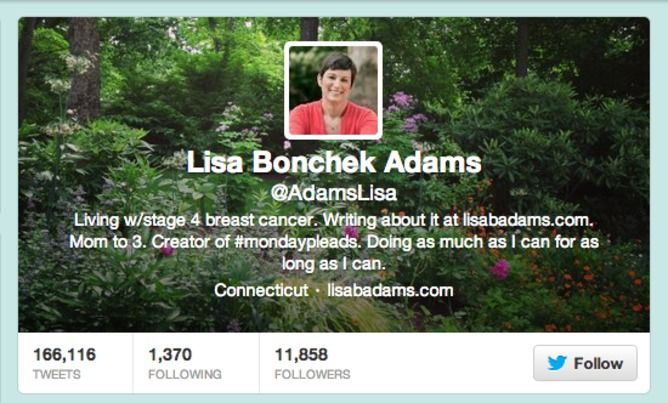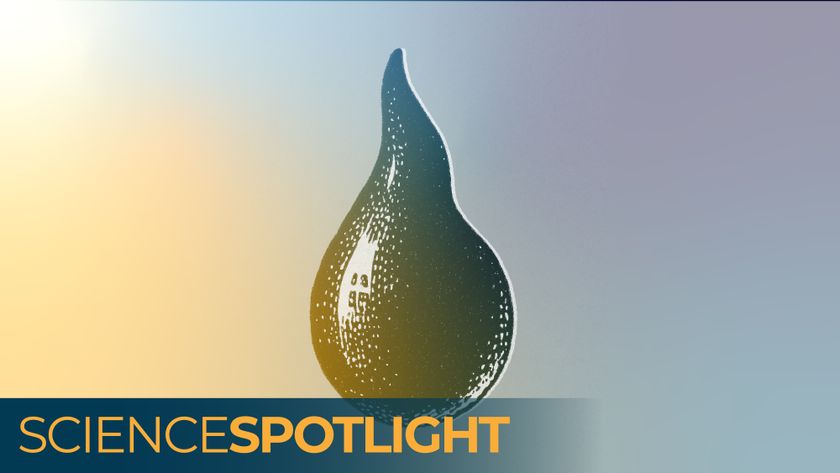
If You Don't Like People Tweeting About Cancer, Don't Read It (Op-Ed)

This article was originally published at The Conversation. The publication contributed the article to LiveScience's Expert Voices: Op-Ed & Insights.
If there is a set of rules about coping with cancer, I have never seen it. Perhaps in some circles a commonly accepted method exists. If so, I remain in the dark, despite my own experiences with this disease.
Equally uninformed are many fellow cancer patients who are coping, in remission or “cured.” Only now we’re being told in a blog by Bill Keller in the New York Times and another by his wife Emma G Keller in the Guardian (as I write removed from the site, pending investigation) that certain ways of talking about our condition are self-serving, inappropriate, and in bad taste.
Bogus rules of coping with cancer
Many bloggers have responded to Keller’s article in which he criticises a blog and Twitter feed by Lisa Adams, where she shares with some 10,000 followers what it is like living with Stage 4 cancer. Keller sees her “online omnipresence” as unsettling, especially when compared to his father-in-law’s “calmer” passing, and wrote:
Lisa Adams’s choice is in a sense the opposite. Her aim was to buy as much time as possible to watch her three children grow up. So she is all about heroic measures. She is constantly engaged in battlefield strategy with her medical team. There is always the prospect of another research trial to excite her hopes. She responds defiantly to any suggestion that the end is approaching.
Keller does give Adams credit for participating in research trials, even if he feels the need to refer to her as an “eager” subject. He recognises that she has benefited from her blogging and the social support she garners. He continued:
Her digital presence is no doubt a comfort to many of her followers. On the other hand, as cancer experts I consulted pointed out, Adams is the standard-bearer for an approach to cancer that honours the warrior, that may raise false hopes, and that, implicitly, seems to peg patients like my father-in-law as failures.
War on cancer cells is only one of many metaphors cancer patients use to mentally cope. It sure beats depression. Keller may have a point here, though. There are no Admirals or Generals of Cancer – no superior officers.
But coping with cancer is surely a battle. I learned that from Bernie Siegel, a former paediatric surgeon turned writer, who taught me to meditate and to fight thoughts that get in the way of recovery.
Sign up for the Live Science daily newsletter now
Get the world’s most fascinating discoveries delivered straight to your inbox.
Cancer is arduous
For years I was reluctant to talk publicly about cancer, so I can visit Keller’s perspective on this. When people applauded after I was introduced at one fundraising event, I felt undeserving. I’ve learned, however, that people don’t applaud because I won or made it this far when someone else didn’t. They clap because coping with cancer is an arduous journey. Just as often, they’re remembering someone they knew and loved.
There are ample targets online without going after a cancer patient who is coping in the best way for her and who is helping many people along the way. Keller’s desire to praise those who “accept an inevitable fate with grace and courage” is fine. But Adams is coping with the challenge of a lifetime and doing so with her own style of grace and courage.
If you believe someone is overdoing their writing about an illness, don’t read what they write. If you haven’t had Stage 4 cancer – or any of a host of challenging and often frightening illnesses – then give us all a break and find another topic. Start a different trend. Leave the rest of us to getting on with things the best way we know how.
Kathleen Reardon is author of Shadow Campus and has been a regular blogger for Huffington Post since 2005. She also blogs at www.kathleenkelleyreardon.com
Kathleen Reardon does not work for, consult to, own shares in or receive funding from any company or organisation that would benefit from this article, and has no relevant affiliations.
This article was originally published at The Conversation. Read the original article. The views expressed are those of the author and do not necessarily reflect the views of the publisher. This version of the article was originally published on LiveScience.












